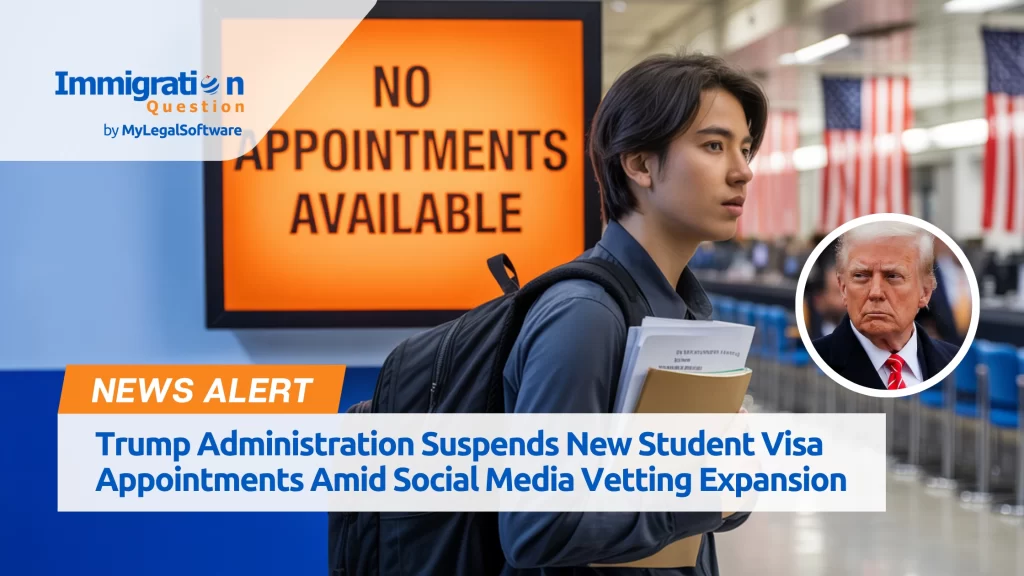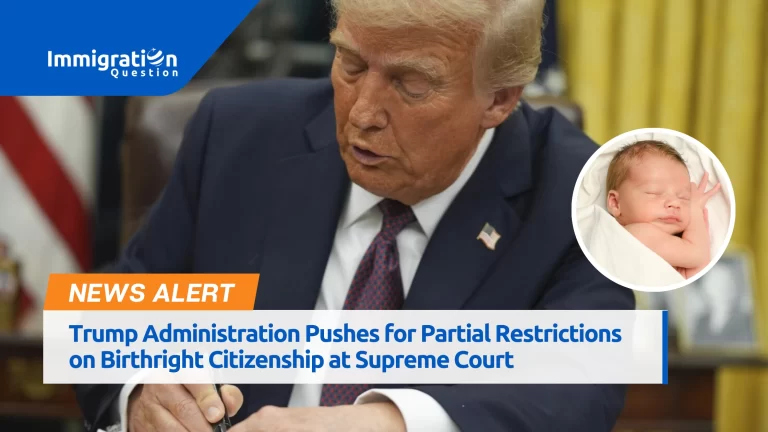The Trump administration has temporarily suspended new student visa appointments worldwide as it intensifies social media vetting of applicants. The move, in the context of an overall tightening of the screws on international students and activism on college campuses, has sparked protests and concerns over curbs on free speech and the future of American international education.
Suspension of Scheduling New Student Visa Interviews
The Trump administration has directed U.S. embassies and consulates worldwide to cease accepting new appointments for student and exchange visitor visa applicants. The freeze is part of efforts to implement broader social media screening protocols for international students seeking visas, according to an internal State Department cable signed by Secretary of State Marco Rubio. All previously scheduled interviews should proceed, but no new slots should be reserved until further notice.
Expanded Social Media Vetting Underway
The State Department is also examining current screening processes and will release updated guidance that will require further review of candidates’ use of social media. The additional screening is designed to discover security risks or foreign policy concerns, but no specific criteria have been released. New procedures will likely impose additional workload and resource demands on consular sections, which must continue these efforts while maintaining ongoing service to U.S. citizens and processing immigrant visas.
Implications for International Students and Universities
More than one million international students are currently enrolled in U.S. schools, representing nearly 6% of the country’s higher education enrollment—the highest figure ever recorded. The suspension of visa appointments and intensified vetting come after escalating tensions between the Trump administration and top universities, specifically Harvard. The administration recently attempted to restrict Harvard’s ability to admit international students, affecting approximately 6,800 individuals, and sought to reduce funding for the school. Protests broke out at Harvard and other universities as students and faculty got upset about the admin’s policies towards international students, especially those involved in activism related to the Israel-Gaza conflict. They say that these policies curtail free speech and academic freedom.
Political and Legal Controversies
The Trump administration has linked deportations and visa revocations to alleged Palestinian activism support on grounds of national security and U.S. foreign policy. Dozens of international students have been arrested or had their visas revoked for their political views, which legal experts view as eroding constitutional protections. The administration’s use of a rarely invoked clause of immigration law to support the action has triggered controversies on the balance between security and civil rights.
Surge of Indian and Chinese Students in U.S. Higher Education
Over the past two decades, the number of Indian and Chinese students enrolling in U.S. universities has significantly increased. From a quarter in the mid-2000s, they now make up over half of all international students. Since many of these groups originate from nations with high geopolitical tensions, this demographic shift has made visa policies impacting these groups particularly important. Such sizable student cohorts would be disproportionately affected by the suspension of visa appointments and increased vetting, which may also impact the financial stability and diversity of American universities.
What’s Next?
The duration of the visa appointment suspension has yet to be determined, and the State Department has promised to provide further guidance. Students and universities are in suspense as they implement intensified social media vetting, which may lead to visa delays and disruptions in international enrollment. The administration’s hardline immigration and higher education policies will continue to shape the trajectory of international students in the U.S., with ongoing court battles and political pushback to be expected.
To stay up-to-date and informed, visit our news page, ask your immigration questions on Immigration Question, and get responses from licensed attorneys. For attorneys, streamline your case and lead management when you download the Immigration Question app.










